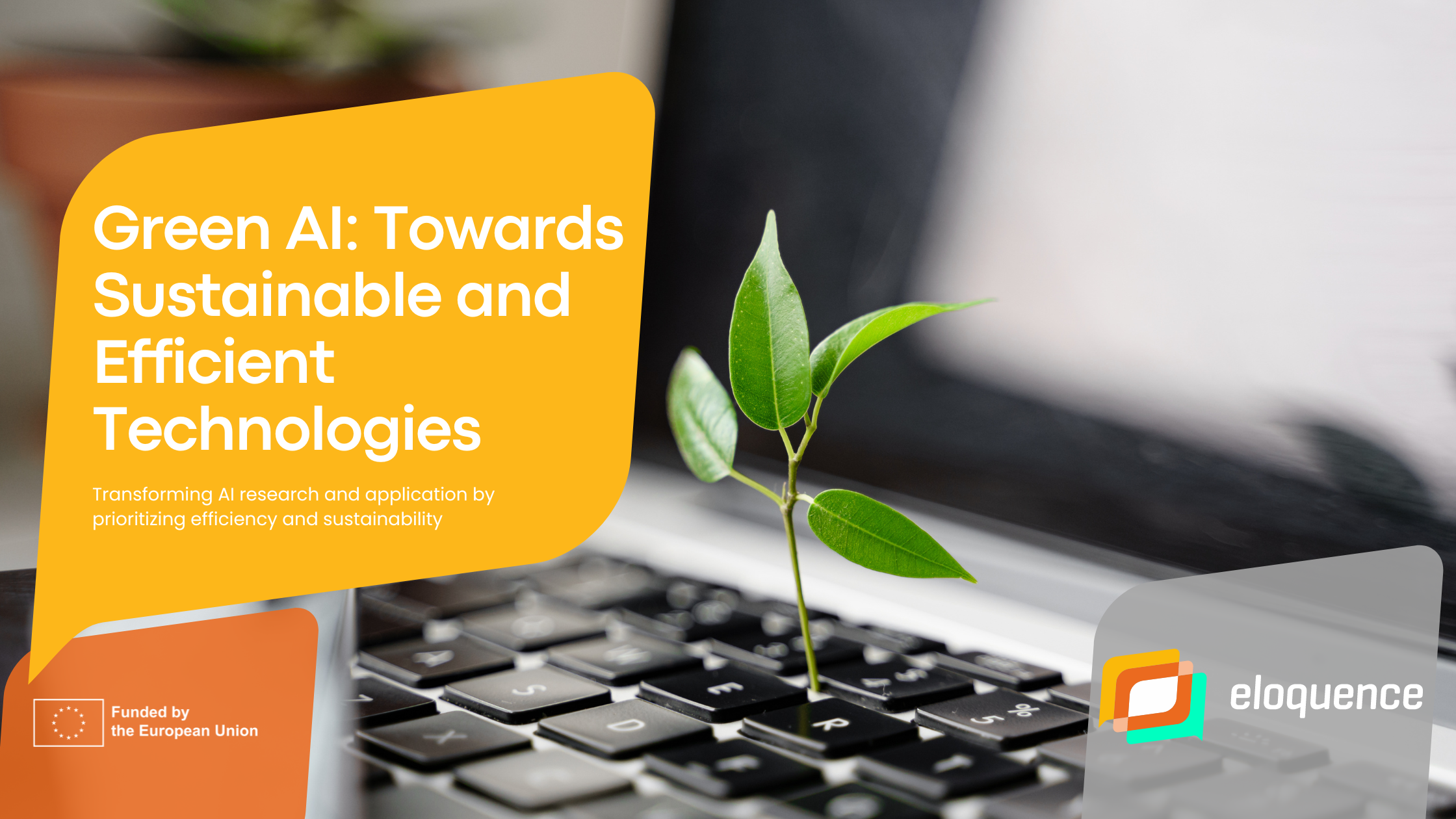Artificial Intelligence (AI) has mainly been associated with the latest improvements in technology, in terms of performance, functionality, and usability. Besides those terms, it is important to be aware of how all this affects our environment. In the ELOQUENCE project, the consortium agreed, at the very beginning, to be active in the development of green AI that meets the criteria of both being environmentally friendly and energy-efficient.
Green (AI) Matters
The term “Green Artificial Intelligence” represents a technology aware of its ecological influence. Conventional machine learning algorithms create a huge amount of computation, which uses high amounts of power and energy, which results in increased carbon emissions. Thus, by implementing green AI, ELOQUENCE targets to minimize this impact and contribute to the sustainability of AI development.
Why does “Green Artificial Intelligence” matter?
- By cutting the energy used in the training and running of the AI models and algorithms, green AI lowers the operating expenses and environmental footprint.
- It contributes to the development of innovative technologies, that are in communion with nature and the environment.
- It follows ethical standards and respects society’s values, by giving assurance that the full achievement of the AI technologies will not negatively influence the planet.
Promoting Sustainable AI Practices
Over the years, certain studies have shown that training just one machine learning (ML) model can match the combined carbon emissions of multiple cars.
The achievements of AI models do not always depend on the amount of data used. Prioritizing targeted, domain-specific AI models over constant size increases aligns with sustainability by optimizing resources and addressing specific use cases efficiently. It reduces the effects on the environment due to development processes.
Activities like prompt engineering, prompt tuning, and model fine-tuning can help to layout utilization and therefore efficiently cut down carbon footprint in the process of modifying the generative dependencies of base models. Consequently, enlarging the computational possibilities of these models with low-demand resources, detailed classes including quantization, distillation, and client-side caching, as well as utilizing exclusive hardware (in-memory computing, analogue computing), boost the AI model’s efficiency and ensure overall sustainability.
ELOQUENCE in Green
The objectives of ELOQUENCE are focused on the development of AI technologies that are beneficial to the environment, effective and can work with numerous European languages while respecting European values, and safety-critical applications. ELOQUENCE envisions developing a technology using a sustainable computational framework for efficient and green-power architectures. One key goal is to enhance the sustainability of LLMs by halving both the quantity of training data and energy consumption.
In the AI’s future, the project will strive to create a bright and green future by training the voice bots to make the most efficient decisions. On the other side, green AI has enormous potential to promote sustainability and alleviate climate change. However, it is not a standalone solution and should be viewed as a complementary approach to other mitigation and adaptation strategies.


